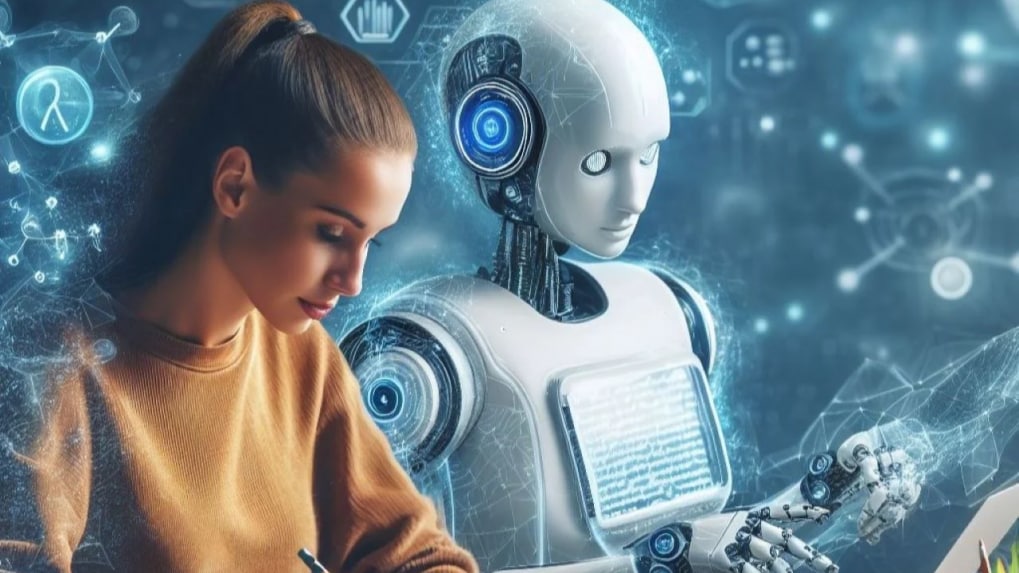Today in AI | Open AI works to reduce dependence | Google AI points security flaws | ChatGPT users rise to 700 million
Storyboard18 brings you the top AI news of the day.
ADVERTISEMENT
The world of Artificial Intelligence has only begun to affect human lives. In times like these, staying up-to-date with the AI world is of utmost importance. Storyboard18 brings you the top AI news of the day.
OpenAI introduces new features to combat emotional dependence on ChatGPT
OpenAI is rolling out new "gentle reminders" in ChatGPT to help users manage their time and encourage breaks. This initiative is part of the company's philosophy that the AI's success is measured by how efficiently it helps users complete tasks, not by how long they stay engaged.
In a statement, OpenAI clarified its goal: "Our goal isn’t to hold your attention, but to help you use it well." This echoes a broader effort to ensure the AI promotes a healthy balance between digital and real life.
Beyond managing screen time, OpenAI is also refining how ChatGPT handles sensitive, high-stakes topics. For personal dilemmas, such as relationship advice, the AI will shift from offering direct solutions to helping users thoughtfully consider the pros and cons of their situation.
Furthermore, the model is being enhanced to better identify signs of emotional distress. Instead of amplifying harmful thoughts or emotional dependencies, ChatGPT will guide users toward evidence-based resources.
Google's AI bug hunter reports 20 new security flaws
Google's new AI-powered bug hunter, Big Sleep, has successfully found and reported its first 20 security flaws. The tool, developed by Google's DeepMind and Project Zero teams, identified vulnerabilities in popular open-source software like FFmpeg and ImageMagick.
While a human expert was involved in the final verification process, Google confirmed that Big Sleep, an LLM-based vulnerability researcher, autonomously found and reproduced each flaw. This breakthrough, hailed by Google's VP of Engineering, Royal Hansen, as "a new frontier in automated vulnerability discovery," marks a significant step for AI in cybersecurity.
Google's Heather Adkins, VP of security, announced the findings, but details on the impact and severity of the vulnerabilities remain undisclosed as a standard practice while waiting for the bugs to be fixed.
Sundar Pichai urges Google staff to ‘accomplish more’ as AI disruption reshapes tech landscape
Amid a bleak outlook for the global IT sector, marked by widespread layoffs triggered by the rapid adoption of AI tools and preparations for continued economic uncertainty, Google CEO Sundar Pichai has issued a pointed directive to employees for 2025: “I think we have to accomplish more.”
The message, delivered during an internal town hall and reiterated in a company-wide memo, emphasises a renewed focus on productivity, innovation and corporate responsibility across Google’s global operations.
Pichai’s appeal comes at a critical juncture for both Google and its parent company Alphabet. The technology industry is facing intensifying competition in emerging areas such as artificial intelligence and cloud services, while simultaneously navigating economic headwinds that have led major firms to restructure their human workforces.
OpenAI says ChatGPT on track to reach 700 million weekly users
ChatGPT is on track to hit 700 million weekly active users this week, marking a dramatic rise from 500 million at the end of March and a fourfold increase compared to the same time last year, according to OpenAI.
Nick Turley, VP and head of the ChatGPT app, shared the milestone in a post on X, noting that every day, individuals and teams are increasingly relying on ChatGPT to learn, create, and solve complex problems.
“Big week ahead. Grateful to the team for making ChatGPT more useful and delivering on our mission so everyone can benefit from AI,” he wrote.
The app's popularity has soared since OpenAI rolled out upgraded image-generation capabilities powered by the GPT-4 model in March. Following the update, more than 130 million users collectively created over 700 million images within a few days, according to OpenAI COO Brad Lightcap.
Microsoft lays off 40 more employees in Washington amid massive AI investment
Microsoft is letting go of another 40 Washington-based employees, as the company continues to streamline its workforce while ramping up record investments in artificial intelligence, according to media reports.
The latest cuts, disclosed in a state filing on Monday, are separate from earlier global layoff announcements. In May, Microsoft said it would shed more than 6,000 workers worldwide, followed by another 9,000 job losses in July.
So far in 2025, the Redmond-headquartered company has eliminated 3,150 positions in Washington state alone, including the latest round. A Microsoft spokesperson described the moves as part of "necessary and regular" organizational changes, reports suggest.
The layoffs come despite Microsoft delivering record quarterly revenues and profits, largely fuelled by its booming cloud and AI business.

